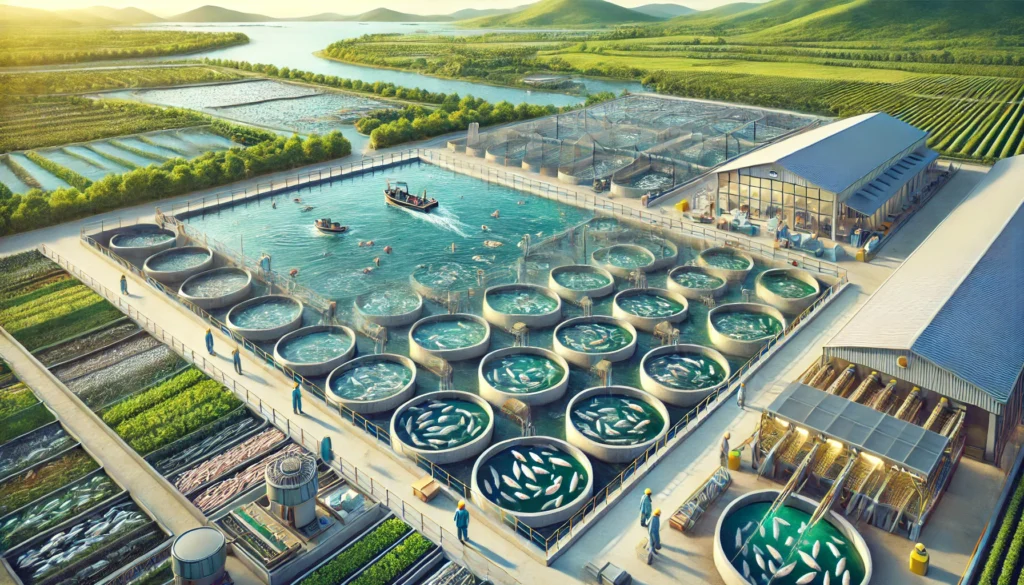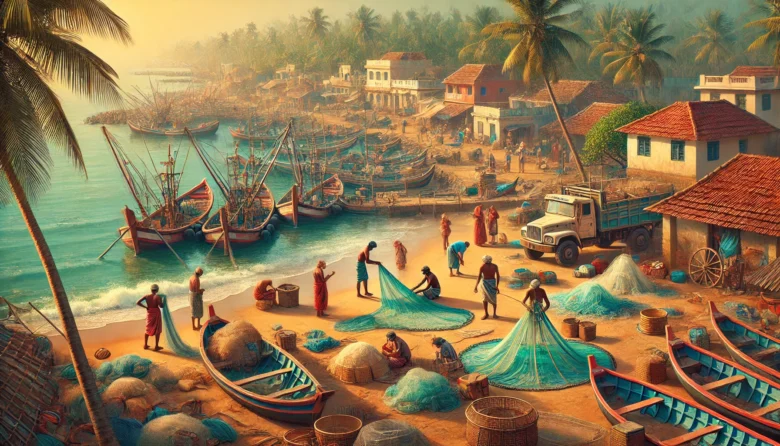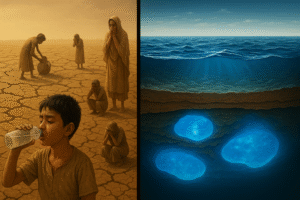In recent years, sustainable seafood has become a crucial topic of discussion, especially in India, where the coastline stretches over 7,500 kilometers. Sustainable seafood practices aim to maintain healthy fish populations and ecosystems, ensuring that our oceans remain productive and resilient. In this blog, we’ll dive into what sustainable seafood means, why it’s important, and how we can all contribute to preserving our ocean’s bounty.
Introduction
The term “sustainable seafood” refers to fishing and aquaculture practices that maintain or increase fish populations without compromising the health of marine ecosystems. With India’s rich tradition of seafood cuisine, ensuring a healthy ocean harvest is more important than ever. By adopting sustainable seafood practices, we can protect our marine resources and enjoy our favorite dishes for generations to come. Let’s explore the significance of sustainable seafood, its benefits, and how we can support this vital initiative.
What is Sustainable Seafood?
Sustainable seafood is harvested in ways that allow fish populations to replenish and thrive without causing long-term damage to marine habitats. This approach involves managing fisheries responsibly, reducing bycatch (unintended catch of non-target species), and protecting critical habitats. Sustainable seafood also includes responsible aquaculture, where fish farming practices minimize environmental impact and avoid overuse of resources.
Key Principles of Sustainable Seafood
Maintaining Healthy Fish Populations: Ensuring that fishing practices do not deplete fish stocks and that populations remain at sustainable levels.
Ecosystem Health: Protecting marine habitats and ecosystems to maintain biodiversity and resilience.
Minimizing Bycatch: Reducing the capture of non-target species and ensuring that fishing methods are selective.
Responsible Aquaculture: Adopting fish farming methods that lessen environmental impact, like minimizing waste and limiting the excessive use of antibiotics.

Importance of Sustainable Seafood
Environmental Impact
Unsustainable fishing practices can lead to overfishing, habitat destruction, and the collapse of fish populations. By choosing sustainable seafood, we help protect marine ecosystems and ensure that ocean life continues to flourish.
Economic Benefits
Sustainable fisheries and aquaculture can provide long-term economic benefits to coastal communities. Healthy fish populations ensure a stable source of income for fishers and related industries, such as processing and tourism.
Food Security
With the global population increasing, sustainable seafood is essential for maintaining a reliable food source. By ensuring that fish populations are managed responsibly, we can continue to enjoy seafood without depleting ocean resources.
Consumer Health
Sustainable seafood is often fresher and healthier, as it is harvested responsibly and with better oversight. This means fewer contaminants and better nutritional value for consumers.
Sustainable Seafood Practices in India
Traditional Practices
India has a long history of traditional fishing practices that are inherently sustainable. These methods, such as using small nets and selective fishing techniques, have minimal impact on marine ecosystems and ensure that fish populations remain healthy.
Modern Innovations
Marine Protected Areas (MPAs): Establishing MPAs helps conserve marine habitats and allows fish populations to recover and thrive.
Sustainable Certification: Programs like the Marine Stewardship Council (MSC) certification ensure that seafood products meet stringent sustainability standards.
Community-Based Fisheries Management: Involving local communities in managing fisheries promotes sustainable practices and empowers fishers to protect their resources.
How to Support Sustainable Seafood
Making Informed Choices
As consumers, we have the power to drive demand for sustainable seafood. Here are some tips to help you make informed choices:
Look for Labels: Choose seafood with sustainability certifications, such as MSC or Aquaculture Stewardship Council (ASC).
Ask Questions: When buying seafood, ask about its origin and whether it was sustainably sourced.
Support Local Fisheries: Buying from local fishers who use sustainable practices helps support community-based management and reduces the environmental impact of transportation.
Advocating for Sustainable Practices
Spread Awareness: Inform your friends and family about why sustainable seafood is important.
Support Policies: Advocate for policies that promote sustainable fishing and protect marine habitats.
Reduce Waste: Minimize seafood waste by buying only what you need and using leftovers creatively.
Success Stories
Kerala’s Sustainable Fisheries
Kerala has led the way in advancing sustainable fisheries in India. The state’s fishers use traditional methods and have adopted modern practices to protect fish populations and marine ecosystems. Community-based management and the establishment of no-fishing zones have been instrumental in preserving Kerala’s rich marine biodiversity.
Andaman and Nicobar Islands
The Andaman and Nicobar Islands have implemented several sustainable fishing initiatives, including the establishment of MPAs and the promotion of eco-friendly fishing gear. These efforts have helped protect the region’s unique marine life and ensure a sustainable seafood supply for local communities.
Conclusion
Maintaining healthy oceans and securing a dependable food source for future generations depends on sustainable seafood. By adopting sustainable fishing and aquaculture practices, we can protect marine ecosystems, support local economies, and enjoy healthier, fresher seafood. Let’s all play our part in promoting sustainable seafood and ensuring a healthy ocean harvest for years to come.
Author’s Note
As a passionate advocate for ocean conservation, I believe that sustainable seafood is the key to preserving our marine resources. By choosing wisely and backing sustainable practices, we can keep our oceans lively and thriving. Let’s join hands in protecting our seas and securing a healthy future for all.
G.C., Ecosociosphere contributor.





Comments
First of all I want to say wonderful blog! I had a
quick question that I’d like to ask if you do not mind. I was interested to know how you center yourself and clear your
thoughts prior to writing. I’ve had difficulty clearing my mind in getting my thoughts out
there. I truly do enjoy writing but it just seems like the first 10 to 15 minutes
are usually wasted simply just trying to figure out how to begin. Any suggestions or
tips? Thanks!
my homepage: tox23